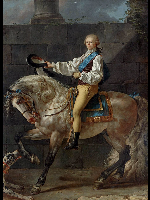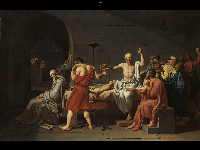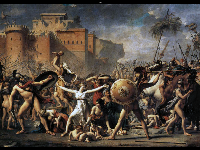Według krążących legend, najdłużej żyjącą Polką była Łucja Uczcikowa (ur. 13 grudnia 1709 roku, mieszkanka Kosiarek, żyjąca przy swoim prawnuku), która w roku 1876 liczyła 166 lat, zaś najdłużej żyjącym mężczyzną był Dymitr Grabowski, który dożył 168 lat.
Karol X koronowany na króla Francji.
Boliwia ogłosiła niepodległość od Hiszpanii.
Otwarcie pierwszej linii kolejowej w Anglii.
Kongres USA zdecydował o wysiedlaniu Indian ze wschodnich terenów Stanów i przesiedleniu ich na zachód od rzeki Missisipi.
W Wielkiej Brytanii uznano legalność istnienia i działania związków zawodowych.
Populacja Londynu 1,35 mln mieszkańców, Londyn stał się największym miastem świata.
Louis Braille opracował alfabet Braillea.
ur. się Maria Angela (Zofia Kamila Truszkowska) założycielka Zgromadzenia Sióstr Felicjanek, błogosławiona katolicka (zm. 1899)
ur. się Johann Strauss (syn), kompozytor austriacki (zm. 1899)
zmarł Aleksander I, car Rosji (ur. 1777)
zmarł Jacques-Louis David (ur. 1748). francuski malarz.
One of the most significant events of 1825 was the inauguration of the Erie Canal in New York. This 363-mile-long waterway connected the Hudson River to the Great Lakes, providing a crucial trade route for the transportation of goods and fostering economic growth in the region. Its completion marked a remarkable achievement in engineering, as it required an extensive system of locks to overcome various elevations along its path. The Erie Canal played a vital role in the westward expansion of the United States, facilitating trade and the movement of people to the Midwest.
In the realm of science, 1825 saw an important breakthrough in photography. This was the year when the first successful photograph using the camera obscura technique was captured by French inventor Joseph Nicéphore Niépce. In his famous photograph, titled "View from the Window at Le Gras," Niépce captured the landscape outside his window, becoming the first person to permanently record an image through the process of photography. This groundbreaking invention laid the foundation for the development of modern photography, revolutionizing the way we perceive and preserve our visual history.
1825 also witnessed significant political events across the globe. In Russia, the Decembrist Revolt took place, where a group of military officers led an uprising against Tsar Nicholas I, demanding political reforms and the establishment of a constitutional monarchy. Although the revolt was swiftly crushed, it represented a critical moment in Russia's path to modernization and set the stage for future revolutionary movements in the country.
In the realm of arts and culture, 1825 was a memorable year for one of the greatest composers of all time, Ludwig van Beethoven. It was during this year that Beethoven premiered his Ninth Symphony in Vienna, a monumental work that introduced choral elements for the first time in symphonic music. The Ninth Symphony remains an iconic piece, renowned for its powerful and inspirational ode to joy, which has become a universal anthem celebrating the human spirit. Beethoven's composition marked a bold venture into new musical territories and forever transformed the symphonic landscape.
These are just a few examples of the significant events that took place in 1825. They demonstrate the diverse range of achievements and breakthroughs in various fields during this transformative year. Whether in the expansion of trade and transportation, the advancement of photographic technology, political upheavals, or artistic innovation, 1825 left an indelible mark on history, shaping the world in profound ways that continue to resonate even today.
Zakończono budowę budynku I Liceum Ogólnokształcącego im. Juliusza Słowackiego (1809-1849) w Elblągu.
Pierwsze wiertło dentystyczne w USA.
W Montrealu rozegrano pierwszy mecz hokeja na lodzie.
W stanie Kentucky odbył się pierwszy wyścig konny Kentucky Derby.
Wielka Brytania odkupiła od władcy Egiptu jego udziały w Kanale Sueskim.
ur. się Thomas Mann, pisarz niemiecki (zm. 1955). Czarodziejska Góra (1930).
ur. się Carl Gustv Jung, szwajcarski psycholog i psychiatra (zm. 1961).
ur. się Edgar Rice Burroughs, amerykański pisarz, twórca cyklu książek o przygodach Tarzana (zm. 1950).
zm. Georges Bizet, francuski kompozytor (ur. 1838).
zm. Isaac Merritt Singer, amerykański wynalazca współczesnej maszyny do szycia (ur. 1811).
zm. Hans Christian Andersen, duński bajkopisarz (ur. 1805).
zm. Aleksiej Konstantinowicz Tołstoj, rosyjski poeta i dramatopisarz (ur. 1817).
zm. Wojtek Mateja, ostatni tatrzański zbójnik grasujący na terenie Tatr i Podhala.
One of the most important events of the year was the establishment of the British India Office. This governmental department was responsible for overseeing and administering British India until the Indian independence movement gained momentum in the early 20th century. It played a crucial role in the governance and management of the Indian subcontinent, including issues related to trade, finance, and security.
In the field of science and technology, Alexander Graham Bell made a groundbreaking invention with his development of the first practical telephone. In March 1876, Bell received a patent for his invention, which forever revolutionized communication. With this invention, people could now transmit voice messages over long distances in real-time, sparking a technological revolution that would have a profound impact on society in the years to come.
Another significant event in 1875 was the invention of the first safety elevator by Elisha Otis. His design utilized a safety mechanism that prevented the elevator from falling in case of a cable failure, making it considerably safer than previous models. Otis' invention paved the way for the construction of taller buildings and skyscrapers, transforming urban landscapes throughout the world.
In the literary world, French writer Jules Verne published his renowned novel "The Mysterious Island" in 1875. This captivating adventure story captivated readers worldwide with its tale of survival and resourcefulness on a deserted island. Verne's works, including classics like "Twenty Thousand Leagues Under the Sea" and "Around the World in Eighty Days," would continue to shape science fiction literature for generations to come.
Turning to the political arena, the Quinault Treaty of 1875 was signed in Washington, D.C., between the Quinault and Quileute tribes of Native Americans and the U.S. federal government. This treaty, like many others during this era, had lasting implications for indigenous peoples, as it resulted in the forced relocation and loss of tribal lands.
In the realm of art, French painter Édouard Manet presented his iconic masterpiece "Olympia" to the public in 1875. This provocative painting depicting a nude reclining woman turned the art world on its head, challenging conventional standards of beauty and female representation. Manet's work received both praise and criticism at the time but is now recognized as a pivotal piece in the development of modern art.
Other significant events in 1875 include the establishment of the Bombay Stock Exchange, one of the oldest stock exchanges in Asia, and the formation of the International Bureau of Weights and Measures, which standardized the metric system.
In conclusion, the year 1875 saw a range of important events across various fields. From technological breakthroughs to cultural milestones, these developments continue to shape our world today.
Zapadła decyzja o budowie Grobu Nieznanego Żołnierza w Warszawie.
Początek publicznej radiofonii w Polsce.
Otwarto skocznię narciarską w Zakopanem.
W ZSRR powstał Związek Wojujących Bezbożników, organizacja propagująca ateizm.
Wybuchło powstanie kurdyjskie przeciwko Turcji.
W ZSRR ukazała się "Pionierska Prawda" jedno z pierwszych w Europie pism dziecięcych.
szkocki wynalazca John Logie Baird zademonstrował w Londynie ruchomy obraz telewizyjny.
Adolf Hitler zrzekł się obywatelstwa austriackiego.
Ukazała się powieść Francisa Scotta Fitzgeralda Wielki Gatsby.
Teresa z Lisieux została kanonizowana przez papieża Piusa XI.
podpisano Protokół genewski o zakazie używania na wojnie gazów duszących, trujących lub podobnych oraz środków bakteriologicznych.
odbyła się premiera komedii Gorączka złota, w reżyserii Charliego Chaplina.
w Niemczech ukazała się książka Adolfa Hitlera Mein Kampf.
Powstał koncern IG Farben, późniejszy producent Cyklonu B.
Pius XI wydał encyklikę Quas Primas (ustanawiająca Święto Chrystusa Króla).
Otwarto pierwszy motel na trasie z Los Angeles do San Franciso. Słowo "motel" to kombinacja dwóch wyrazów: motorist and hotel. Oznacza hotel dla zmotoryzowanych.
Nowy Jork wyprzedził London pod względem ilości mieszkańców i stał się największym miastem świata (populacja ok. 7 774 000).
Vladimir Zworykin opatentował wynalazek telewizji kolorowej.
Po Londynie zaczęły kursować autobusy piętrowe.
Wynaleziono taśmę klejącą.
The year 1925 was a time of significant change and innovation, marked by numerous milestones and events that continue to shape history even today. From groundbreaking discoveries to cultural phenomena, let's delve into some of the most notable happenings that occurred almost a century ago.
1. The Scopes Monkey Trial:
One event that captivated the nation and led to a seismic clash between science and religion was the Scopes Monkey Trial. This landmark court case took place in Dayton, Tennessee, where John T. Scopes, a teacher, was accused of violating a state law by teaching the theory of evolution. The trial became a battleground between fundamentalists and those who supported the teaching of evolution, ultimately showcasing the changing values and intellectual shifts of the time.
2. The Great Gatsby Published:
F. Scott Fitzgerald's magnum opus, "The Great Gatsby," was published in 1925, becoming an instant classic and a significant literary contribution of the era. The novel explored themes of wealth, morality, and the American Dream, leaving an indelible mark on American literature and society.
3. The Discovery of Pluto:
1925 witnessed a significant astronomical discovery—Pluto, our solar system's ninth planet at the time. Astronomer Clyde Tombaugh spotted the celestial body while working at the Lowell Observatory in Arizona. Though since reclassified as a dwarf planet, Pluto's discovery expanded our understanding of the solar system and sparked wonder and curiosity about the mysteries of the universe.
4. The Exposition Internationale des Arts Décoratifs et Industriels Modernes:
Paris hosted the Exposition Internationale des Arts Décoratifs et Industriels Modernes, an international exhibition that would eventually inspire the Art Deco movement. The expo showcased modern industrial design, influencing art, fashion, and architecture for years to come. This event helped shape the aesthetics of the Roaring Twenties and left an enduring impact on art and design.
5. The Publication of Adolf Hitler's Mein Kampf:
In 1925, Adolf Hitler's autobiographical manifesto, Mein Kampf, was published, giving insight into the ideology and ambitions of the future leader of Nazi Germany. While it initially gained little attention, it became crucial to understanding the rise of Hitler and the events that unfolded in the following years.
6. The Teapot Dome Scandal:
Another significant event in 1925 was the Teapot Dome Scandal, which rocked the United States. This political scandal involved corruption within the administration of President Warren G. Harding, regarding the leasing of naval oil reserves to oil companies without competitive bidding. The scandal highlighted the pervasiveness of political corruption and led to a profound public outcry for reform.
7. The First Motel:
In San Luis Obispo, California, the first motel, the Milestone Mo-Tel, opened its doors in 1925. This event marked the beginning of a new hospitality industry, allowing travelers to conveniently access roadside accommodations during their journeys. The motel concept revolutionized the way people traveled and paved the way for the thriving lodging industry we experience today.
As we look back at the significant events of 1925, we are reminded of the far-reaching impact they had on society and the paths they forged for the future. These events not only shaped their time but continue to resonate and influence our lives, culture, and understanding of the world in which we live.
Premiera 1-go odcina serialu telewizyjnego Czterdziestolatek w reżyserii Jerzego Gruzy.
Zlikwidowano powiaty i utworzono 49 województw.
W Polsce zagościł Artur Rubinstein (polski pianista pochodzenia żydowskiego).
Założono Polski Związek Emerytów, Rencistów i Inwalidów.
Festiwal Chopinowski w Dusznikach-Zdroju.
Oddano do użytku Dworzec Centralny w Warszawie.
W Australii rozpoczęto nadawanie sygnału kolorowej telewizji.
Odbyła się 47 ceremonia wręczenia Oskarów.
został wydany album ABBA grupy ABBA.
Upadł Sajgon stolica Wietnamu Południowego, koniec wojny wietnamskiej (1955-1975).
Wszedł do służby lotniskowiec o napędzie atomowym.
Japonka Junko Tabei jako pierwsza kobieta zdobyła Mount Everest.
Premiera brytyjskiej komedii kryminalnej Powrót Różowej Pantery.
W referendum Wielkiej Brytanii 67% głosujących opowiedziało się za przystąpieniem kraju w EWG (Europejska Wspólnota Gospodarcza).
Odbyła się światowa premiera filmu Szczęki w reżyserii Stevena Spielberga.
Zespół Pink Floyd wydał album Wish You Were Here.
W Rzymie beatyfikowano Marię Teresę Ledóchowską siostrę świętej Urszuli Ledóchowskiej.
Premiera filmu Lot nad kukułczym gniazdem w reżyserii Milosa Formana.
Zespół Queen wydał singel Bohemian Rhapsody i jeden z najdroższych albumów: A Night At The Opera.
One of the most significant events of 1975 was the end of the Vietnam War. On April 30th, Saigon, the capital of South Vietnam, fell to the North Vietnamese forces, thus concluding the long and devastating conflict. This marked the end of U.S. military involvement in Vietnam, a war that had cost the lives of over 58,000 American soldiers and had deeply divided the nation. The conclusion of the Vietnam War brought relief to many and initiated discussions about the consequences of war and the role of the United States in global affairs.
1975 was also a year of political change. After a 25-year reign, General Francisco Franco, the dictator of Spain, passed away on November 20th. This event opened the doors to the establishment of democracy and initiated Spain's transition to a constitutional monarchy. The death of Franco would have far-reaching effects on the country and mark the beginning of a significant turning point in Spanish history.
The year also witnessed the ratification of the Helsinki Accords on August 1st. This agreement, signed by 35 nations including the United States, Canada, Soviet Union, and countries from both Eastern and Western Europe, aimed to improve relations between the Communist bloc and the West. The Helsinki Accords laid out principles for cooperation and respect for human rights, serving as a stepping stone towards detente and reducing Cold War tensions.
Culturally, 1975 was a year of artistic milestones. The blockbuster movie "Jaws" was released, becoming the highest-grossing film at that time and revolutionizing the way movies were marketed and distributed. Meanwhile, the rock band Queen released their iconic single "Bohemian Rhapsody," which went on to become one of the greatest rock songs of all time. These cultural contributions reflected a changing artistic landscape that would continue to evolve in the years to come.
In the realm of science and technology, 1975 witnessed notable advancements. Microsoft, now one of the world's largest technology companies, was founded by Bill Gates and Paul Allen on April 4th. This momentous event paved the way for the computer revolution and transformed the way we use and interact with technology today. Moreover, the Viking 1 probe, launched by NASA in 1975, would become the first successful mission to land a spacecraft on Mars, providing invaluable scientific data about the planet.
In conclusion, the year 1975 was filled with significant events that resonated throughout history. From the end of the Vietnam War to political transitions, cultural milestones, and technological advancements, this year left a lasting impact on the world. It serves as a reminder of the ever-changing nature of our society and the importance of reflecting on the past to understand our present.


